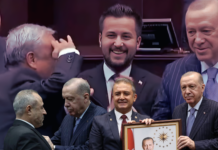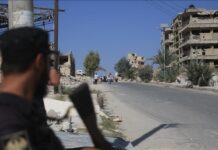The final section of Edward Said’s Covering Islam is titled “Knowledge and Interpretation.” (1) In those concluding pages Said explains what scholars should watch out for in order to achieve a more objective and ethical approach to studying other societies.
He begins by mentioning that all knowledge created about humans and human societies is based upon judgment and interpretation, which also means that such information is situational and directly connected to other interpretations. Subsequently, Said elaborates two conditions which scholars should be aware of while they attempt to formulate interpretations of culture:
… we can say tentatively that knowledge of another culture is possible, and it is
important to add, desirable, if two conditions are fulfilled — which, incidentally,
are precisely the two conditions that today’s Middle Eastern or Islamic studies by
and large do not fulfill. One, the student must feel that he or she is answerable to
and in uncoercive contact with the culture and the people being studied.
(…)
The second condition complements and fulfills the first…. Interpretation is first of
all a form of making: that is, it depends on the willed intentional activity of the human mind, molding and forming the objects of its attention with care and study…. It is a social activity and inextricably tied to the situation out of which it arose in the first place…. Working through national feelings like patriotism or chauvinism to private emotions like fear or despair, the interpreter must seek in a disciplined way to employ reason and the information he or she has gained through formal education… so that understanding may be achieved. A great effort has to be made to pierce the barriers that exist between one situation, the situation of the interpreter, and another…. It is precisely the conscious willed effort of overcoming distances and cultural barriers that makes knowledge of other societies and cultures possible — and at the same time limits that knowledge. (2)
Both of Said’s points deserve extensive discussion, but because of this column’s need for brevity, I will look only briefly at these two main conditions. The first, that one who sets out to study another society must feel that he or she is in “uncoercive contact” with the object of study, is only the starting point. Western scholars or journalists who study and write concerning Turkey must be honest with themselves on this issue. The power implicit in the ability to travel to Turkey on a favored passport requires responsibility and reflection: What is my ultimate purpose? Whose good do I have in mind? What are the implications and potential uses of the texts or narratives that I will construct? Do I have assumptions or ideological predispositions that might distort my understanding of the phenomena that I’m studying?
The second point, as Said explains, is an extension and continuation of the original issue. Foreigners who study Turkish society have an entire cultural and mental complex of their own that they must work through and analyze in order to maintain self-awareness. Something as fundamental as religion or obscure cultural concepts can subtly subvert a scholar’s analysis. Orientalist attitudes and stereotypes such as the “Terrible Turk” are only a few examples. Only with constant awareness and critical self-analysis can the foreign scholar approach a foreign culture.
In my experience, the effort to understand another culture extends even further. One must be willing to move outside of her or his comfort zone, to go to places and experience situations that may seem distasteful or unpleasant. This is not some sort of masochism, but rather recognition of the need to consciously put oneself into situations that force one to challenge and question one’s own preconceived notions about fundamental questions of cultural rights and wrongs, of cultural definitions of appropriate and inappropriate. Experiencing — or preferably sharing — the life conditions and experiences of whichever society a scholar studies is vital to inspiring empathy and understanding. This is the “conscious willed effort” that Said refers to. When I say that Turkey cannot be comprehended from Cihangir or Etiler, I am making the same point.
The task for Turkish academics studying their own society seems equally difficult: Have they made the effort to truly try to understand their fellow citizens? Can they approach the “others” in Turkish society and interact with them in a relationship based on mutual respect? Can they overcome their own prejudices and accept that knowledge is to be found in Konya, Diyarbakır, or Trabzon just as much as in Paris, London, or New York City? Because of the class dynamics of Turkish society, many domestic Turkish social scientists have fallen victim to self-orientalization that distorts their ability to examine Turkish society outside of the elite milieu in which they were either raised or have adopted as their own. (3) Both Turkish politics and academic studies on Turkey have been crippled by this attitude.
In order to understand “actually existing” Turkish society, scholars should not be spending their time in Washington D. C. (or worse, Bodrum, aka “Ibiza East”). They need to head to Bağcılar, to İzmit/Bursa, to Konya, to Diyarbakır, to Trabzon, to Keşan. Only in those places and the many other local regions that comprise the Turkish mosaic will scholars begin to grasp the essences of Turkish culture and society.
Ultimately, my argument is that the distorted or outright deceitful coverage of Turkey by the Western press is rooted in the Western academy. For that reason, I’ll end this series of columns with the same point that Said concludes Covering Islam with:
No one can know everything about the world we live in, and so the division of
intellectual labor will have to continue foreseeably. The academy requires that
division, knowledge itself demands it, society in the West is organized around it.
But most knowledge about human society is, I think, finally accessible to common
sense…. Yet special training is necessary if one is to learn Arabic or Chinese, or
if one is to understand the meaning of economic, historical, and demographic
trends. And the academy is the place to make that training available: of this I
have no doubt at all. The trouble comes when training produces guilds who,
losing touch with the realities of community, good sense, and intellectual
responsibility, either promote the guilds at all costs or put it too willingly and
uncritically at the service of power. In both instances, foreign societies or
cultures like Islam end up being covered more than elucidated or understood.
There is even the danger that new fictions will be invented and unheard-of varieties of disinformation circulated. (4)
In the case of Turkey, what Said suggested about guilds has been fully realized. The inability of foreign journalists to explain Turkish events to their readers has resulted in the creation of a “alternate Turkey” in which white is black and day is night. The political opposition in Turkey, both the Kemalist elites and, since December 2013, the supporters of Fethullah Gülen, have aided and abetted this willful misrepresentation of Turkey to the world.
Even though the Western media should be faulted for not making more effort to understand Turkey, most professional Western journalists have actually been through some academic training. If their intellectual forebears or mentors have not understood the “…meaning of economic, historical, and demographic trends,” resulting in their “…losing touch with the realities of community, good sense, and intellectual responsibility,” then how can we be surprised when their students, such as the journalists covering Turkey for the NYT, the Guardian, the Economist or other publications invent “new fictions” and circulate “unheard-of varieties of disinformation”? This is a pertinent question in regard to the knowledge that the Western academy has produced concerning Turkey.
Starting in the next essay I’ll move on to look at foundational figures in the Western, and specifically American, postwar understanding of Turkey. The initial article will concern a figure I have identified as the first important U.S. interpreter of the Turkish Republic for U.S. political elites: Lewis V. Thomas, a former professor from Princeton.
NOTES
(1) Said, Edward. Covering Islam: How the Media and the Experts Determine How We See the Rest of the World (New York: Pantheon Books, 1981), pp. 154-164.
(2) Ibid., pp. 155-156.
(3) For information on this issue, see Hasan Bülent Kahraman’s Türk Siyasetinin Yapısal Analizi, Cilt I, II (A Structural Analysis of Turkish Politics, Volumes I and II; İstanbul: Agora Kitaplığı, 2008, 2010. See also my Serbestiyet columns on Turkish self-orientalization: “Power and Self-Orientalization in Turkey,” 24 August 2015; “Self-Orientalizing Phenomena in Turkish Society,” 2 September 2015.
(4) Said, p. 162.












